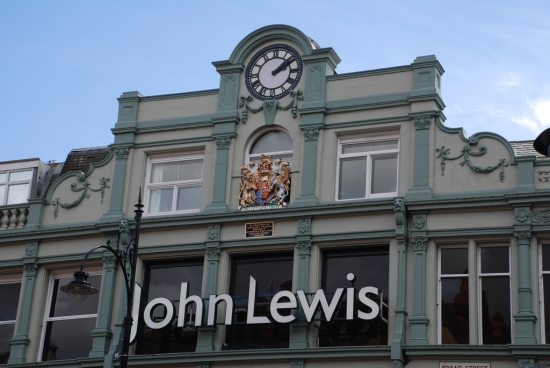With economic recovery in full swing and Christmas looming, British consumers have begun spending in earnest once more. This is good news for the retail industry, especially for brands that have a strong consumer following and are known for reliability and customer service.

In fact, it appears that since the end of the recession British consumers have chosen to favour British brands above all others, with their faith in home grown talent hugely contributing to rising sales on the high street and bringing a much needed boost to the UK’s economic growth. A study of consumer perceptions by retail analysts Nunwood saw department store giant John Lewis take the top spot on this year’s list of the nation’s favourite businesses, climbing from second place since last year’s survey was conducted.
The firm, which is wholly owned by staff, was praised by consumers for its commitment to quality and dedication to providing a top class service for customers. Additionally, consumers were believed to value the department store’s overall business integrity – something which greatly assists in building a loyal customer base.
Director of Nunwood, David Conway, believes that John Lewis’ cooperative status plays a key role in influencing consumer perceptions.
He says; “Unquestionably, there is a bit of an aura around John Lewis.
“The fact that it is owned by its employees has given it a halo effect.
“Customers have a feeling that the staff will try that bit harder and make an extra effort, so they view it as a brand that they can trust.”
Other British retailers also fared well in the list, with Marks and Spencer, Lush and Ocado all being placed in the top ten. Should the results translate into sales, it seems that many British brands will be having a very merry Christmas this year.
Yet it was not only retailers that were rewarded by British consumers for their performance in customer satisfaction over the past year, with Virgin Atlantic and banking division First Direct also claiming their places in the top ten. Even British holiday company Butlins managed to climb the table, gaining 14th place from 165th thanks to its millions of pounds of investment into development of upmarket hotels and apartments.
Mr Conway claims that the popularity of these brands is not simply driven by their high street or online presence, but also by the directors and founders who have built them from the ground up.
He concludes; “These are brands that are both British but are also identifiable by their owners.
“There is an almost romantic appeal of British entrepreneurs who are driving British businesses and making a success of them.”
Will your purchases this Christmas be motivated largely by the companies selling them and whether or not you place stock in their perceived trustworthiness, or will you simply give companies which offer good value for money your custom whether they are British or not?
Previous Post
Developer counts the Cost of Walkie-Talkie Solar Glare